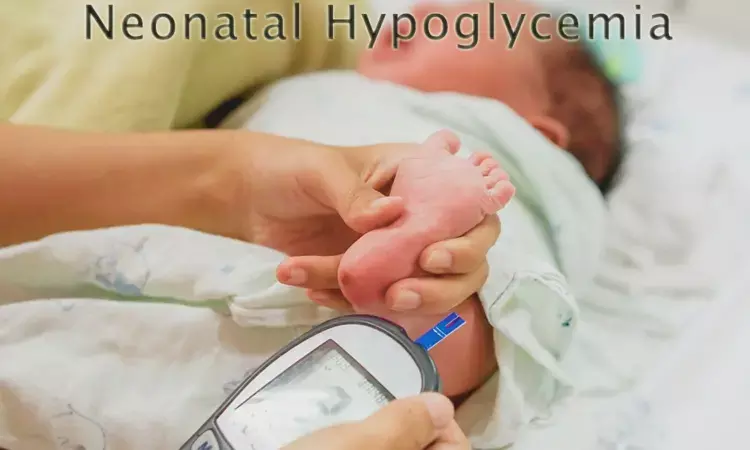- Home
- Medical news & Guidelines
- Anesthesiology
- Cardiology and CTVS
- Critical Care
- Dentistry
- Dermatology
- Diabetes and Endocrinology
- ENT
- Gastroenterology
- Medicine
- Nephrology
- Neurology
- Obstretics-Gynaecology
- Oncology
- Ophthalmology
- Orthopaedics
- Pediatrics-Neonatology
- Psychiatry
- Pulmonology
- Radiology
- Surgery
- Urology
- Laboratory Medicine
- Diet
- Nursing
- Paramedical
- Physiotherapy
- Health news
- Fact Check
- Bone Health Fact Check
- Brain Health Fact Check
- Cancer Related Fact Check
- Child Care Fact Check
- Dental and oral health fact check
- Diabetes and metabolic health fact check
- Diet and Nutrition Fact Check
- Eye and ENT Care Fact Check
- Fitness fact check
- Gut health fact check
- Heart health fact check
- Kidney health fact check
- Medical education fact check
- Men's health fact check
- Respiratory fact check
- Skin and hair care fact check
- Vaccine and Immunization fact check
- Women's health fact check
- AYUSH
- State News
- Andaman and Nicobar Islands
- Andhra Pradesh
- Arunachal Pradesh
- Assam
- Bihar
- Chandigarh
- Chattisgarh
- Dadra and Nagar Haveli
- Daman and Diu
- Delhi
- Goa
- Gujarat
- Haryana
- Himachal Pradesh
- Jammu & Kashmir
- Jharkhand
- Karnataka
- Kerala
- Ladakh
- Lakshadweep
- Madhya Pradesh
- Maharashtra
- Manipur
- Meghalaya
- Mizoram
- Nagaland
- Odisha
- Puducherry
- Punjab
- Rajasthan
- Sikkim
- Tamil Nadu
- Telangana
- Tripura
- Uttar Pradesh
- Uttrakhand
- West Bengal
- Medical Education
- Industry
lncreased fetal catecholamines associated with postnatal hypoglycemic episodes: JAMA

Neonatal hypoglycemia, a condition marked by low blood sugar levels in newborns, poses significant risks and can be particularly concerning for infants with perinatal stress or fetal growth restriction. Understanding the underlying mechanisms of this condition is crucial for effective management and prevention.
Perinatal stress and fetal growth restriction are known risk factors for neonatal hypoglycemia, but the precise pathomechanism remains unclear. In a recent study, researchers investigated whether elevated catecholamine concentrations in umbilical cord blood (UCB) and amniotic fluid (AF) are associated with neonatal hypoglycemia and whether they correlate with postnatal glycemic levels. This study was published in the JAMA Pediatrics. The study was conducted by Henrike H. and colleagues.
The key findings of the study were:
• The study involved 328 neonates, with 234 in the risk group and 94 in the control group.
• Growth-restricted neonates showed increased umbilical cord blood (UCB) concentrations of norepinephrine (21.10 vs 10.88 nmol/L), metanephrine (0.37 vs 0.12 nmol/L), and 3-methoxytyramine (0.149 vs 0.091 nmol/L) compared to controls.
• Neonates with perinatal stress had increased UCB concentrations of norepinephrine (22.55 vs 10.88 nmol/L), normetanephrine (1.75 vs 1.25 nmol/L), and 3-methoxytyramine (0.120 vs 0.091 nmol/L).
• UCB norepinephrine, metanephrine, and 3-methoxytyramine concentrations were positively correlated with the number of hypoglycemic episodes (rs = 0.146, p = 0.01; rs = 0.151, p = 0.009; and rs = 0.180, p = 0.002, respectively).
• These concentrations were also negatively correlated with the lowest measured blood glucose levels (rs = -0.149, p = 0.01; and rs = -0.153, p = 0.008).
• UCB catecholamine concentrations were negatively correlated with amniotic fluid C-peptide concentration (rs = -0.212, p = 0.005; rs = -0.182, p = 0.016; and rs = -0.183, p = 0.016).
• A p-value of less than 0.0083 was considered statistically significant due to multiple comparisons.
Neonates at risk for hypoglycemia exhibited elevated catecholamine concentrations in UCB, which correlated with postnatal hypoglycemic episodes and lower blood glucose levels. These findings suggest a link between perinatal stress, fetal growth restriction, and neonatal hyperinsulinemic hypoglycemia. Understanding these mechanisms could improve the management of newborns at risk for hypoglycemia.
Reference:
Hoermann, H., van Faassen, M., Roeper, M., Hagenbeck, C., Herebian, D., Muller Kobold, A. C., Dukart, J., Kema, I. P., Mayatepek, E., Meissner, T., & Kummer, S. (2024). Association of fetal catecholamines with neonatal hypoglycemia. JAMA Pediatrics. https://doi.org/10.1001/jamapediatrics.2024.0304
Dr Riya Dave has completed dentistry from Gujarat University in 2022. She is a dentist and accomplished medical and scientific writer known for her commitment to bridging the gap between clinical expertise and accessible healthcare information. She has been actively involved in writing blogs related to health and wellness.
Dr Kamal Kant Kohli-MBBS, DTCD- a chest specialist with more than 30 years of practice and a flair for writing clinical articles, Dr Kamal Kant Kohli joined Medical Dialogues as a Chief Editor of Medical News. Besides writing articles, as an editor, he proofreads and verifies all the medical content published on Medical Dialogues including those coming from journals, studies,medical conferences,guidelines etc. Email: drkohli@medicaldialogues.in. Contact no. 011-43720751


